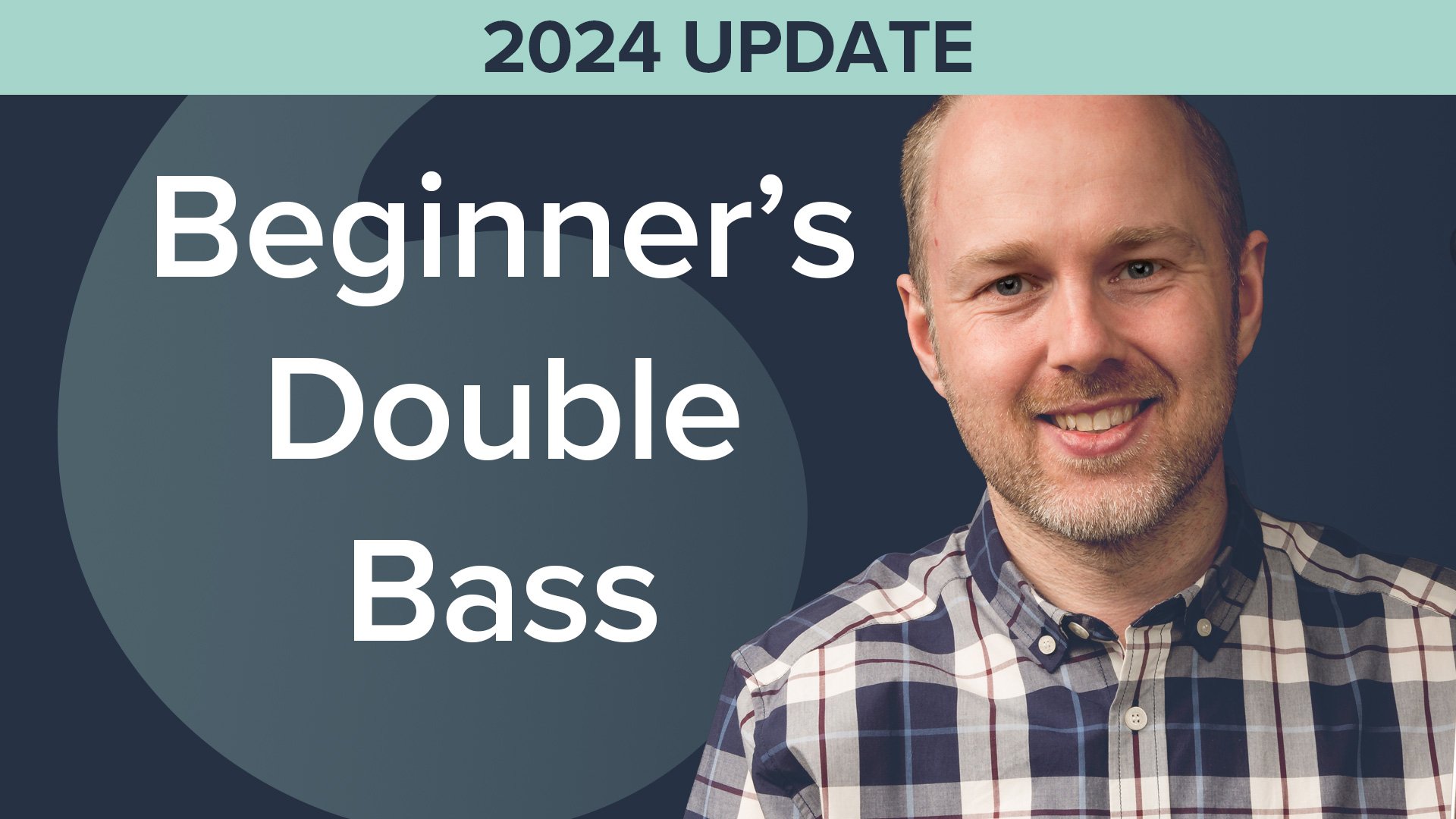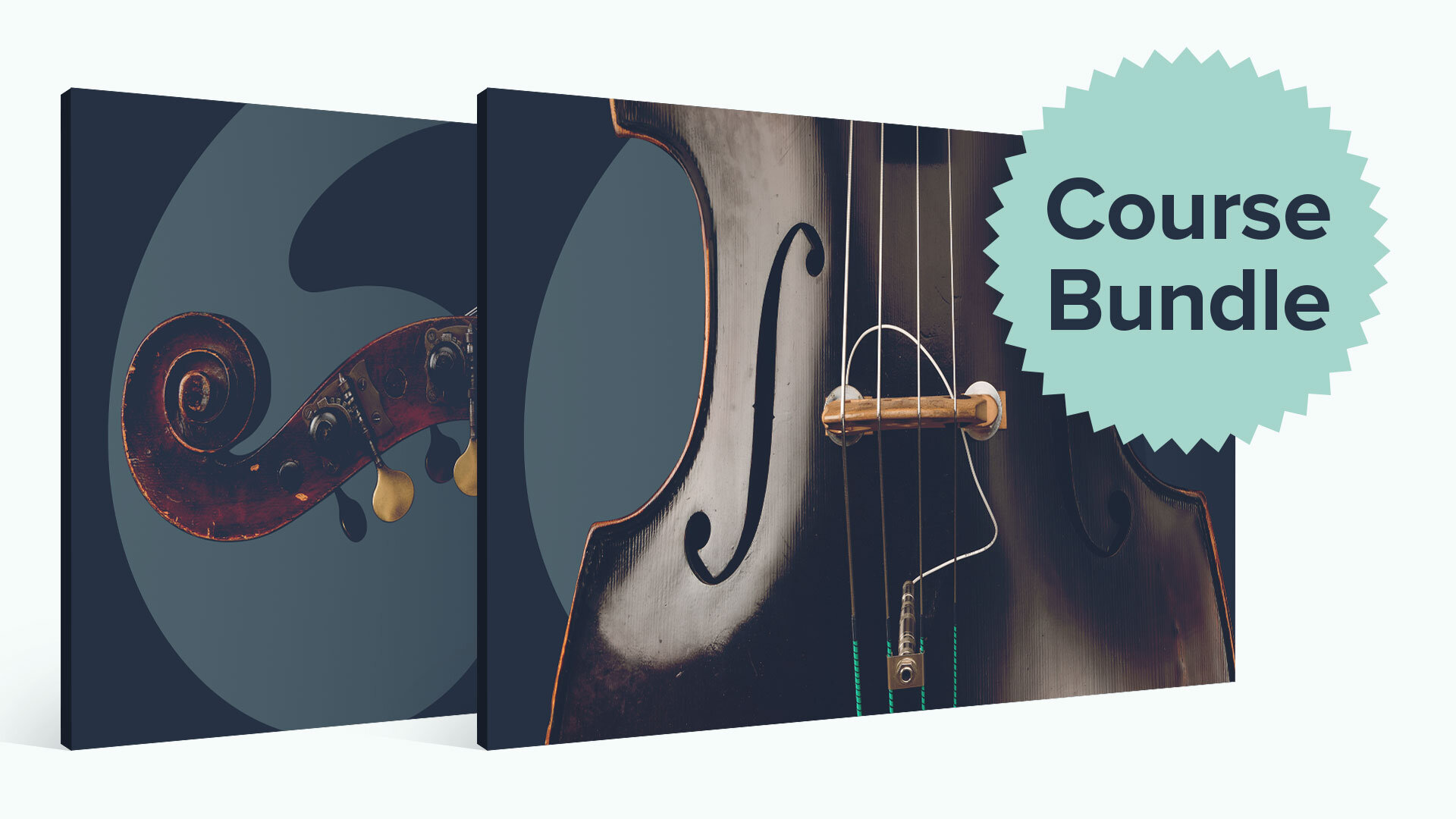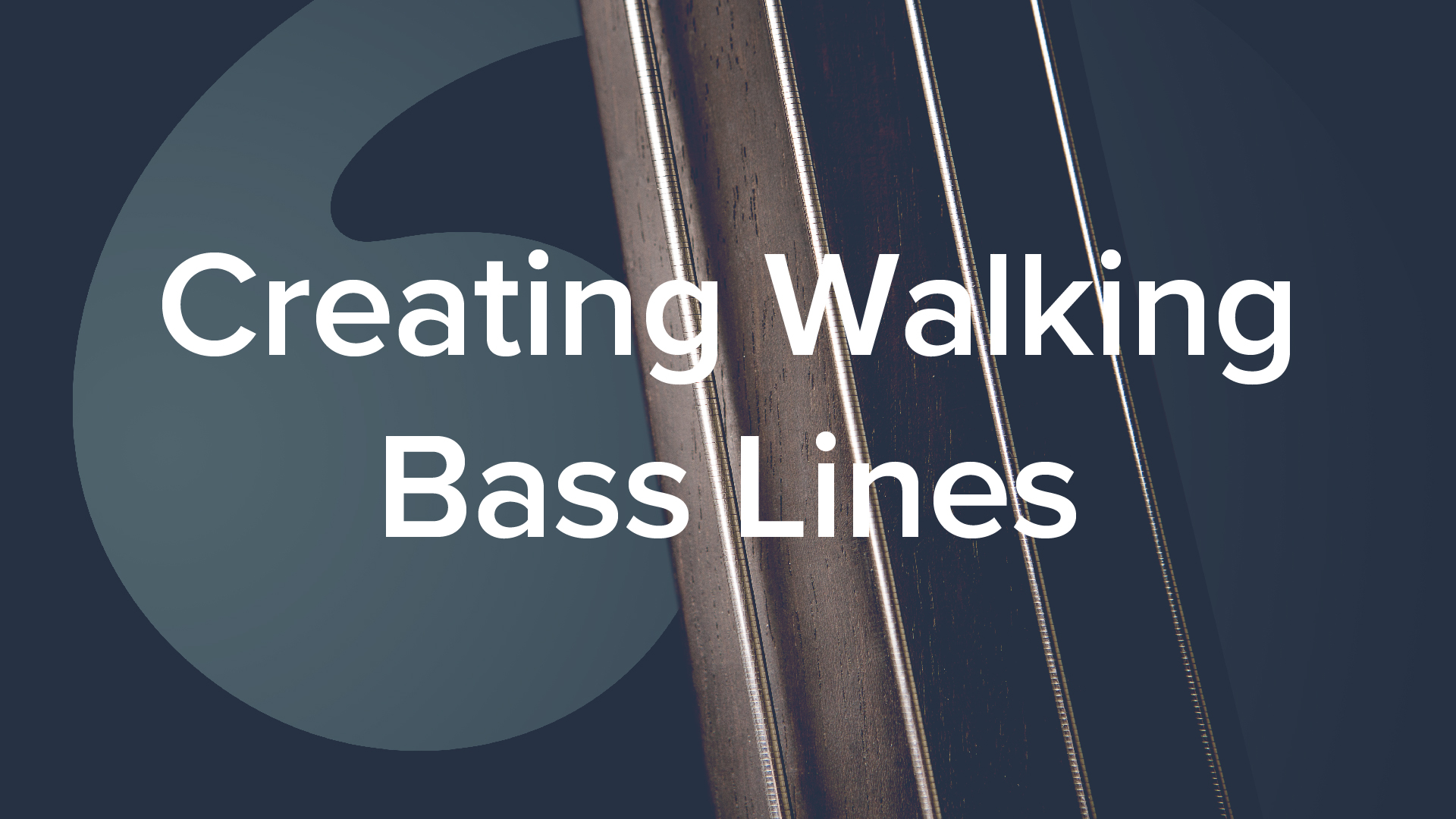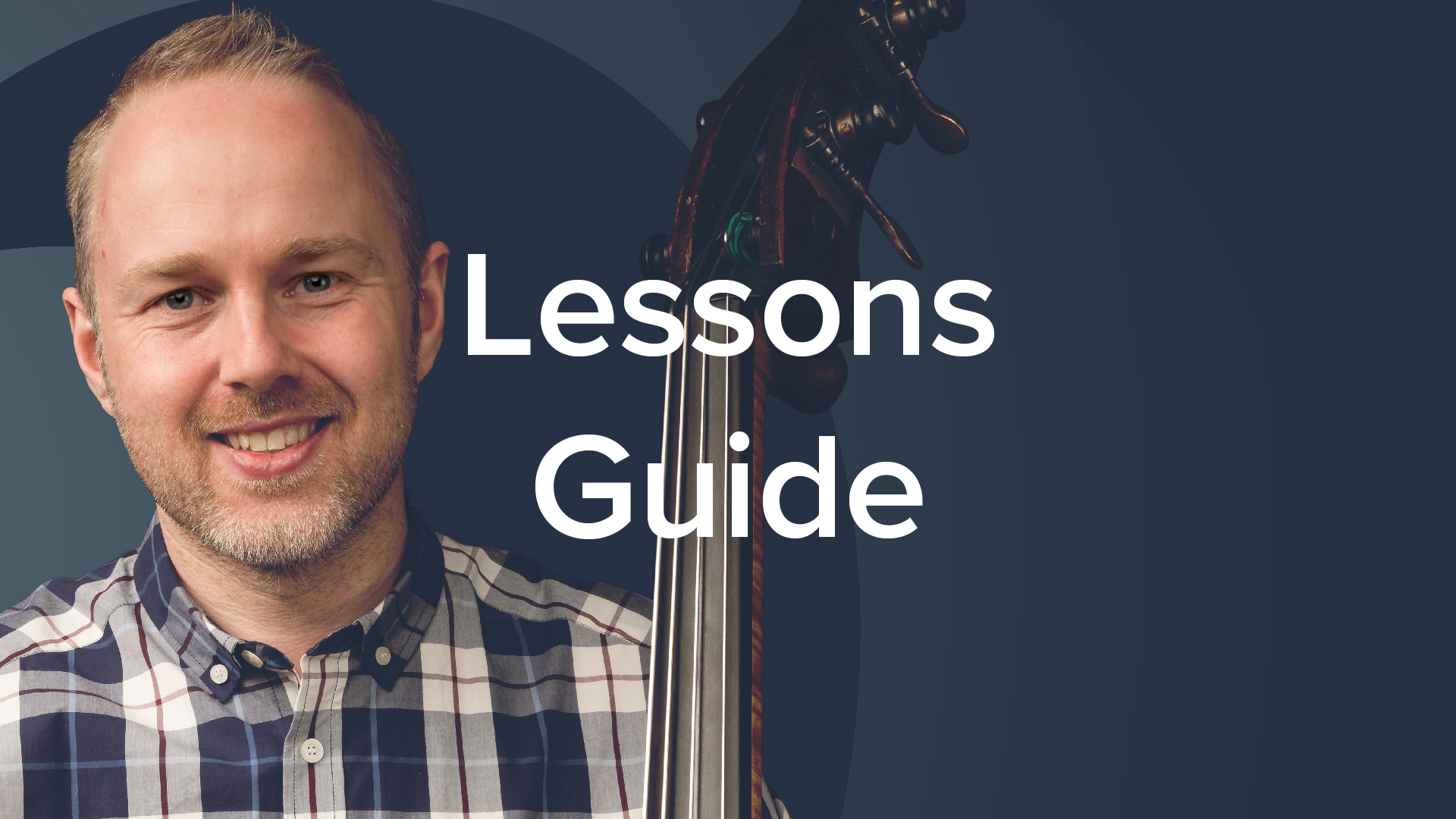I’ve recently received several emails asking me the same question:
“What can I work on to improve my playing whilst I’m away from my double bass?”
This is a great question and one that at some point is relevant to all of us. Perhaps you are on holiday or working away from home? Maybe you are just too busy to get to your instrument and want to maximise the free time that you have. Because the double bass isn’t the easiest instrument to transport, this is a common problem for all of us. As a result, I thought you might find some of the following suggestions and ideas useful.
Write out walking bass lines over common chord progressions. If you play jazz, this is a big one! The lines you write will certainly be different to the ones you would improvise on your bass. The written bass lines will help you find new ways of playing through chord progressions and internalise your knowledge of harmony; i.e., which chord tones go with which chord. In addition, when you finally play the lines on your bass, you will soon find challenging shifts and areas of technique that require improvement. I did this as a student and recently found an old manuscript pad filled with walking bass lines I had created. It’s a great exercise you can do anywhere. So grab a sheet of manuscript paper and a pencil and get started!
Study music theory. If you have some free time, but are still a bit vague about music theory, this is a great way to spend your time. There are so many ways you can do this, such as reading about harmony and bass line construction. Additionally, the Discover Double Bass Lessons Guide contains detailed written guidance for my lessons if you want to continue working on the lessons offline.
Write down some music. I once had a jazz teacher who told me he wasn’t able to sight read fluently until he had learnt how to notate music. I couldn’t agree more and had exactly the same experience. It made a huge difference in my sight-reading. Don’t put it off. Write out scales, bass lines or anything that gets you into the habit of writing music.
Work on transcriptions. You don’t have to have access to a double bass to transcribe, especially with music notation software that allows you to play back what you have written. If you can notate music and then establish a practice of transcription, it’s an amazing skill.
Improve your ear training. This is crucial as it affects practically all aspects of your bass playing. I recommend that you practice singing intervals ascending and descending. Test yourself using a tuner app on your phone and check out some of the ear training apps too. A quick tip for practising intervals is to sing the root to the target note and then descend the scale to see if you are correct. For example, if you sing up a perfect 5th then descend the major scale, there should only be three other notes before you reach the root note.
Sing bass lines or melodies as you visualise the fingerboard. This is a fairly advanced exercise, but if you are looking for new ways to work on your ear training, it’s a good one. I generally sing a bass line (in my mind if I’m in public) and visualise the pattern I would use to play it on the double bass. Start small; even simple melodies can be tricky at first. If you don’t have an instrument to play the music for reference, you need to be confident you are correct. I’ve also found singing walking bass lines a lot easier over familiar chord progressions such as a blues.
Listen to some new music. Get some inspiration for what you want to play when you get back to your bass. I can’t think of a better way of spending an hour than listening to a Ray Brown record!
Work on your rhythm. This is a fundamental aspect of your musicianship, and it’s essential you work on developing your rhythmic accuracy. You can also learn new rhythmic language by tapping, clapping and singing. A metronome is a big help, as you need a reference point to assess your progress. There are several free metronome apps available for your phone or online if you don’t have a phone with you.
Improve your sight-reading. You can practice looking at and naming the pitches plus singing them (if possible) or at least singing/clapping the rhythm.
Write out the key signatures. I used to do this all the time when I was learning my key signatures. It’s essential to be able to identify a key signature and understand which accidentals it contains. For me, writing them out was a huge help. I used to write them all down several times a day and then test myself by thinking of a random key and naming the number of accidentals plus the relative minor key. For example, E major has four sharps and the relative minor key is C# minor.
Enjoy the time off. You will come back to the instrument fresh and full of creative ideas. The bass is important, but so is creating space to think, relax and have fun.
I hope you find these ideas useful. If you have some you would like to share, please leave a comment below. I would love to hear your thoughts.
Best of luck with your practice and if you are on holiday this month, enjoy your time off!
Geoff Chalmers








